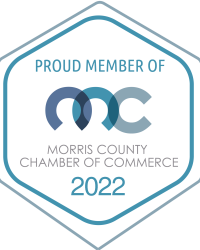
The holidays can be a challenging time for everyone, but they are often made more difficult when we must also navigate sobriety.
It’s important not only to protect yourself, but also show support for others in early sobriety by staying clean during these festivities where alcohol, excitement and emotions flood the air more than usual.
Keep your sobriety during the holidays intact by following these five easy tips.
1. Don’t Be Afraid to Say No.
This may be hard, but it’s important to take an honest look at upcoming holiday events and decide if they are healthy for you and your recovery.
If the thought of attending makes your skin crawl or feels wrong in any way, then don’t go – even if this might seem disloyal as a family member.
Consider how these meals played out during past gatherings so that we can learn from our mistakes moving forward instead of repeating them again this holiday season.
When considering whether or not you should attend an event, remember, it’s okay to arrive late and leave early. Do what makes you comfortable and what is best for your recovery and mental health.
2. Increase Support.
Don’t be surprised if your family members don’t offer you the support that is needed. When the holidays get busy, it’s easy to skip meetings and other commitments. Stay connected with recovery by attending a 12-step meeting, or two, everyday during the holiday season to stay focused on your recovery goals.
Pay attention during the announcements at your 12-step meetings to find out about alcothons in your area. These events provide additional support and a safe place on holidays.
If you’re attending any events, be sure to call your sponsor before and after the event. You may even want to bring a sober companion to keep each other in check.
3. Be Prepared.
Be ready to politely decline alcoholic drinks with a simple “No thank you.” You don’t need to share every detail of your recovery with everyone you see, unless you want to.
Taking your own vehicle to holiday parties ensures you can have complete control over what happens. Having a vehicle also allows you to have an exit strategy if things become too uncomfortable. No one needs to know the real reason you’re leaving early. Saying “I feel unwell, sorry!” is an honest way of saying your recovery comes first.
4: Exercise & Self Care
The holidays are a time where we should all try to stay healthy by getting enough sleep and eating nutritious foods. It’s easy for our bodies to go into hibernation mode during this period, but there’s no need to make your recovery difficult on yourself!
Take some steps each day towards wellness. Go outside, hike and run or practice yoga at home. Keep up the habit even when it feels like everything else has stopped moving. Exercising and getting yourself outside in the sun has been proven to be valuable to mental health and overall wellness.
5: Be Easy on Yourself!
Setting intentions for the holidays is a great way to stay focused. Whether you’re putting your thoughts onto paper or taking a mental inventory, it’s important that we create goals. These goals allow us to appreciate the small victories and are important to keep one grounded when there’s pressure from others’ expectations. Take the holidays one second, minute, hour, and day at a time, and nothing is impossible!
With BlueCrest Recovery Center, you are never alone on your recovery journey. We advocate for our clients every step of the way from detox to aftercare. If the holidays are too challenging, don’t hesitate to call us 24/7 at 973-832-1722.
For more information, please reach out to John Plunkett, Outreach Coordinator for BlueCrest Recovery Center
Email: JohnP@BlueCrestRC.comPhone: (973) 902-6116




